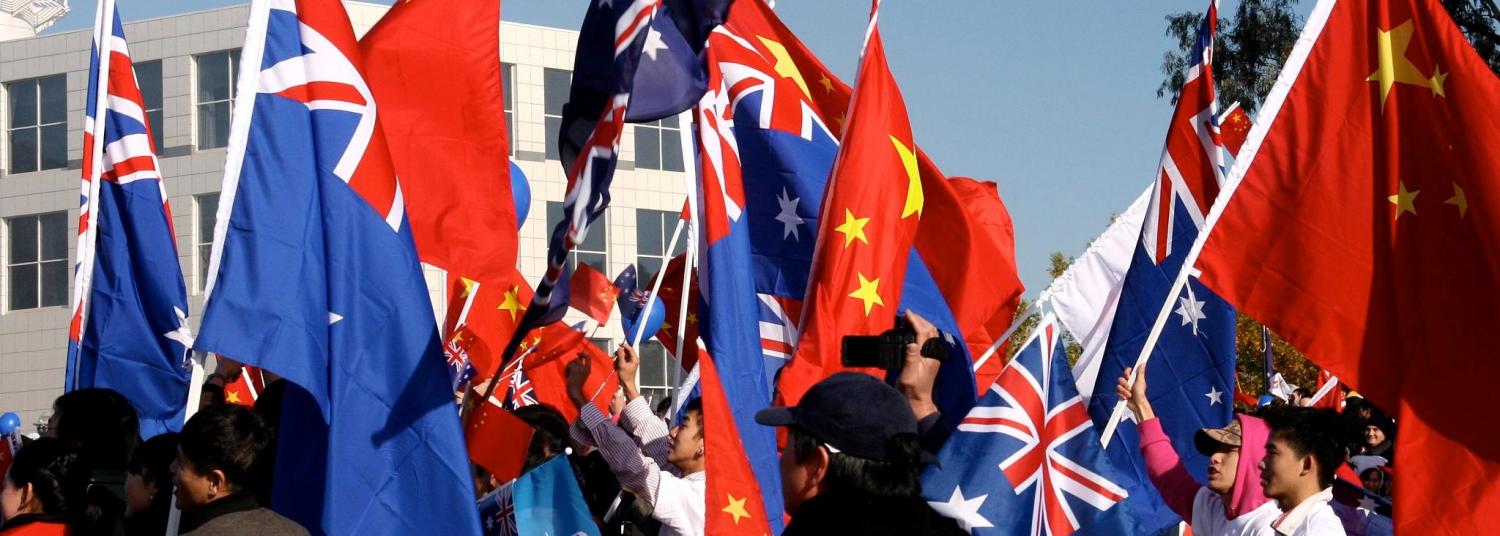In responding to recent media coverage of Chinese communist party influence over Australia’s institutional infrastructure ('Where have all the grown-ups gone on China policy?', Australian Financial Review), former Ambassador to China Geoff Raby makes an important point.
The issue is not the recent Four Corners program or Fairfax press coverage itself. Raby concedes that it is proper for Australian media to warn about Chinese agents of influence, to call out politicians who compromise themselves by accepting largesse, and to expose the role of China's diplomatic missions in monitoring Chinese students on campus. He recognises that it is entirely appropriate for the Australian Security Intelligence Organisation to alert Australian politicians to risks attendant on accepting donations from people with close links to foreign governments.
His critical point is this: intensive media exposure of Australia’s institutional vulnerabilities makes it 'much harder to have an informed, urgent, national debate about how we best engage with China and the neighbourhood.'
Is this really the case?
Recent media coverage has been chiefly concerned with Australia and only indirectly with China. In the main, it has focused on the integrity and resilience of our institutional infrastructure, the capacity of our political leadership, the principles we stand for, and where we should draw the line if we want to retain a measure of integrity, resilience, and trust in our institutions. In considering issues such as these, it does not help to have members of parliament or university research centres dancing to the tune of foreign donors or donors linked to foreign governments. When those donations go directly to questions of policy they are particularly damaging to public trust.
In this sense, public exposure of Chinese government meddling in Australian affairs and of irresponsible self-dealing by Australian politicians and political parties is a necessary pre-condition for advancing the national debate we have to have about how Australia should position itself in relation to Washington, Beijing, and the region in light of China’s growing power and assertiveness.
In kick-starting this conversation some years ago, Professor Hugh White drew on the lessons of history and his own observations about where China and the US were heading in the 21st century. Since then, discussion has focused on China’s growing power and assertiveness, on the resolve - or lack of resolve - of the US to maintain its dominant regional presence, and on Australia’s evident discomfort at the prospect of having to choose between its largest trading partner and its alliance partner, euphemistically captured in the Howard-era formula that we don’t need to choose between Beijing and Washington at all. As White and others have pointed out, even this choice may not be ours to make.
What has been missing from the debate so far has been serious reflection on the nature of the Chinese regime, on the values that underpin it, and on Australia’s institutional capacity to respond to the differences that divide us. When China’s track-record has come up, claims mounted on its behalf by its Australian champions have been simplistic. Former prime minister Malcolm Fraser’s interventions were coloured by an ill-founded belief that China was, and remains, a benign power that eschews territorial expansion, without regard to China’s historical record or current behaviour. Former foreign minister Bob Carr maintains that China is becoming more like us, in stark contrast to what Chinese authorities themselves are saying on the matter.
The national debate has paid equally little regard to what it would mean for Australia’s sense of values and self-worth to accede to China’s demands within Australia. In short, the terms of the debate thus far, as Hugh White recently pointed out, don’t come close to addressing the nature or scale of the issues and choices Australians face in confronting China’s growing power.
One question White identifies is 'What does China want?'. What would a region dominated by China look like? What would it look like at home in Australia? Some idea can be gleaned from Chinese government ownership and control of local Chinese community media in Australia. The lessons are frankly alarming.
Another set of issues turns on values, specifically whether a free, open, egalitarian, inclusive and democratic society would need to compromise some of its core attributes to accommodate the demands of a regime that is patently authoritarian, opaque, hierarchical, and non-inclusive. Perhaps these differing value systems could coexist in a closer relationship without risk of contradiction or conflict. But if Australians were compelled to compromise, where would they draw the line?
To answer this question Australians need to ask what it is they value most, what their basic principles are, where their core interests lie, and what they would be prepared to surrender short of surrendering their own self-worth. Would they be content for their political parties and universities, for example, to remain quiet on matters of fundamental principle in order to win favour with China?
This question is implicit in the recent media coverage on institutional responses to Chinese efforts to influence national policy and compromise Australian institutions. China is not going to change to accommodate Australia. And Beijing is unlikely to change any time soon on its own account. But Australia could well change in fundamental ways if it moved to accommodate China’s growing power without regard to questions of value, integrity and public trust.
We are now having the debate we have to have on institutions, values and trust in light of China’s growing power. The Four Corners and Fairfax investigations are part of this urgent debate.

